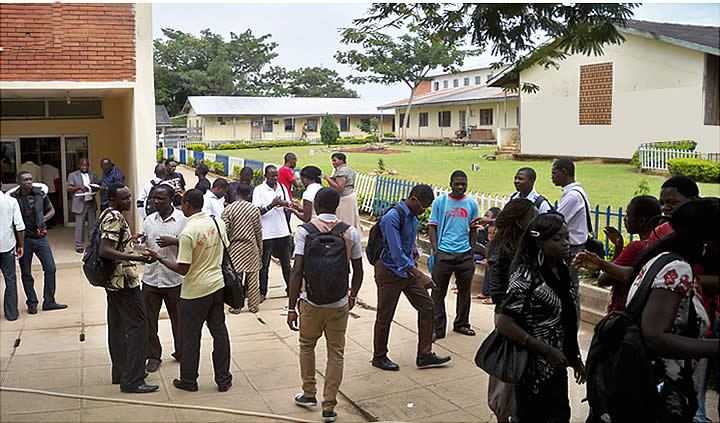
>The Executive Secretary, National Universities Commission, Prof. Julius Okojie, has said that Nigerian universities are not accessing the World Bank grant for research.
Okojie’s lamentation was contained in the current edition of the NUC Monday Memo, released after a one-day workshop for Nigerian universities on the establishment of the African Centres of Excellence project in Abuja.
He also noted that despite available funds, the universities were not doing very well in research and publication.
Okojie expressed regret that some of the funds provided for the Science, Technology and Education Post-Basic (STEP-B) project by the World Bank had not been accessed.
This, he said, was because there had been inadequate viable proposals from universities. He added that because the universities could not access the fund, the money had to be returned to the World Bank.
It will be recalled that authorities of most of the tertiary institutions that the $180m World Bank grant was meant for could not write successful proposals until the bank organised a workshop on how to write winning proposals for them.
It was after the workshop that some tertiary institutions were able to access the fund.
Okojie, however, urged Nigerian researchers to make optimum use of the funds provided for the ACE project.
He expressed regret that the NUS had moved from publishing in regional journals to individual university journals.
The NUC Secretary, therefore, urged them to challenge themselves to make new discoveries.
Okojie said that the African continent was experiencing the renaissance of African research and Nigeria must assume her leadership position.
The NUC boss, however, expressed delight at the progress made on the STEP-B project, from which, he said, some Centres of Excellence (CoExes) had emerged in some Nigerian universities. He also expressed optimism that the centres would grow beyond the STEP-B intervention.
Also, the Minister of Education, Prof. Ruqayyatu Ahmed-Rufa’i, has challenged vice-chancellors of Nigerian universities to come up with brilliant proposals that would ensure their emergence as ACEs.
Rufa’i, who spoke at the event, said the timing of the workshop was apt, as the Nigerian University System was on the verge of inaugurating the Nigerian Research and Education Network (NgREN).
Government and other stakeholders, she said, had invested a lot of energy and resources in the NgREN to address some of the IT challenges of the NUS, in terms of teaching, learning and research.
Rufa’i informed participants that ACE was a regional higher education project, aimed at promoting specialisation among participating universities in Science, Technology, Engineering and Mathematics, Health and Agricultural Sciences.
She added that it was designed to address common regional development challenges and strengthen the capacities of the universities to deliver high quality training and applied research.
The minister reminded guests that the nation was in an era when technological advancements defined how people lived. She added that there was a need for coordination and collaboration in research efforts, to find solutions to the country’s challenges.
All Nigerians had to do, she said, was to tap into the technology that continued to transform lives, to make collaborations possible.
Rufa’i commended the efforts of the NUC at encouraging research activities in the NUS, through the Nigerian Universities Research and Development Fair. The fair seeks to promote collaboration among researchers from different universities, the public and private sectors as well as international development partners.
Okojie also said by taking advantage of the NgREN, researchers from the NUS could collaborate with their counterparts across the globe and also showcase their work to the world.
He said that the system was in the process of growing critical manpower to drive it and the economy of the nation in general.
Okojie urged participants to work diligently to understand the procedures of the selection process and the focal areas for the proposals.
Presenting an overview of the Project, the Coordinator and NUC Head of ICT Projects, Dr. Joshua Atah, said the project would be in different phases, with Burkina Faso, Benin Republic, Cameroon, Ghana, Nigeria, Senegal and Togo in the first.
Other countries, which were not directly involved in the first phase but were beneficiaries of demand-driven regional services, were Liberia and The Gambia.
Unlike the STEP-B Centres of Excellence (CoExes), which were exclusively for select federal universities, the selection of the ACEs would be done through a competitive process and would be dependent on the strength of proposals, regardless of the proprietorship of the institutions.

